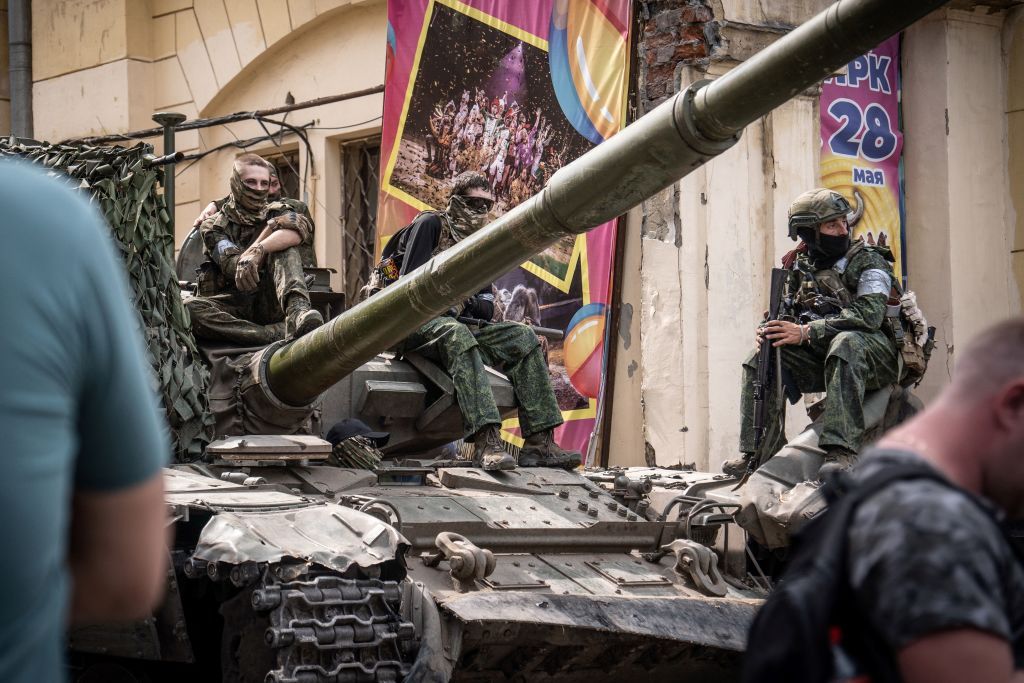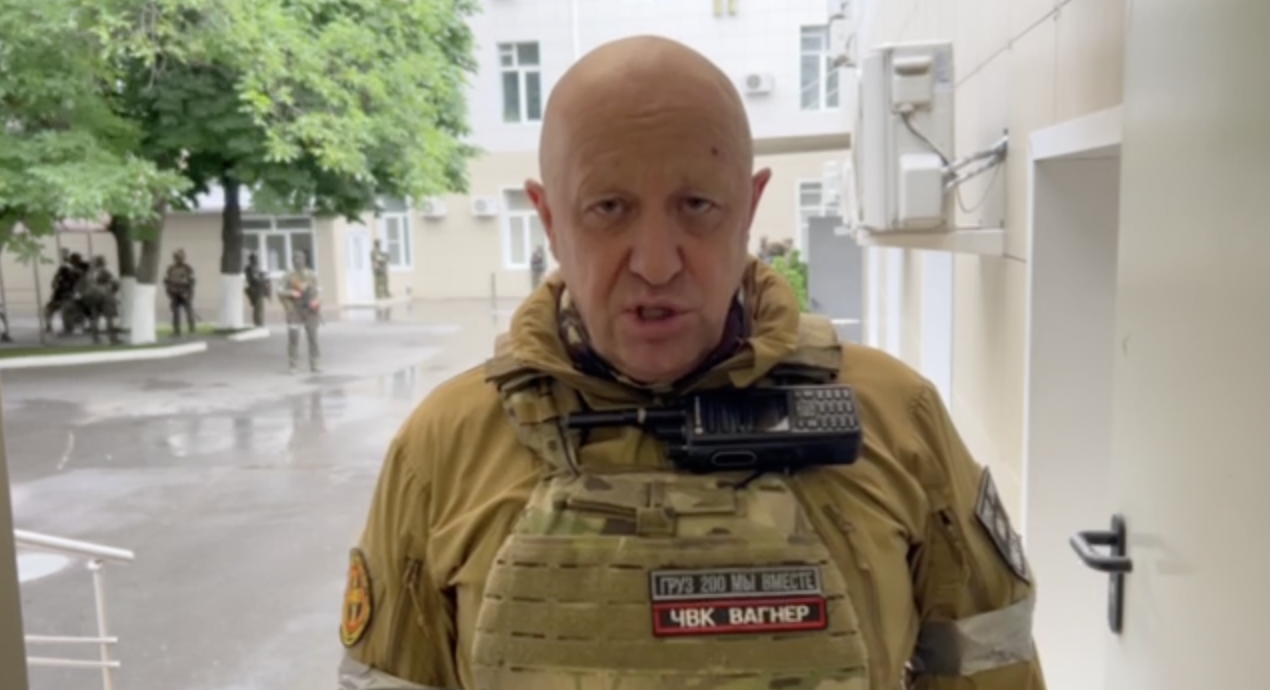Wacław Radziwinowicz: Has Putin lost Russia?

WARSAW – In his address to the Russian people in the wake of Yevgeny Prigozhin’s mutiny, Russian President Vladimir Putin alluded to the events of 1917, when General Lavr Kornilov’s infantry rebellion opened the way for the Bolsheviks to seize power and unleash a five-year civil war.
From the Kremlin’s perspective, that smuta (dark age), is the most dangerous threat to Russia, though not merely for the military calamity that it portends. The men in Putin’s Kremlin do not care what happens to the Russian people, their homes, and their cities. For them, the most frightening prospect is that the state apparatus will take a neutral position at this moment of crisis, waiting to see who will win – and before whom it will be necessary to bow down.
As of this writing, Prigozhin’s Wagner mercenaries have called off their “march of justice” to Moscow, where Prigozhin vowed to hang regime elites – including Defense Minister Sergei Shoigu, Chief of the Russian General Staff Valery Gerasimov, and numerous generals and oligarchs – in Red Square. Wagner’s convoy of thousands of troops and weapons along the M4 “Don” expressway, which at one point was no more than 400 kilometers (250 miles) from Moscow with the Russian army nowhere visible to stop it, has reversed course. But, before agreeing to turn back, they had taken control of Rostov-on-Don, which contains the headquarters of Russia’s southern military district, without a fight and, moving north, took over the important city of Voronezh as well.
But the Wagnerites were never likely to repeat the success of the Blackshirts’ march on Rome in 1922; Benito Mussolini’s Fascists, after all, were invited to take power by Italy’s king. Had Prigozhin not agreed to accept immunity for his mercenaries and a new home in Belarus, the Wagnerites would most likely have suffered the fate of Hitler’s Sturmabteilung (SA), purged and shot by the army and police in 1934, a year and a half after the Nazis came to power.
Putin’s elites, it seems, essentially went into hiding until the acute danger had passed. The fanatical avatars of Kremlin propaganda, such as Margarita Simonyan and Vladimir Solovyov, were silent or made incomprehensible, chaotic announcements.
Other Russian politicians kept their lips sealed. Even former President Dmitry Medvedev, usually a big talker on the internet while Russians drink from Friday to Monday, posted very little, only calling once for the country to rally around Putin.
Putin himself is clearly not up to the hellishly difficult task he now faces: re-asserting control over the country’s demoralized and divided military forces. Until now, his apologists, who have long seemed to believe that he is a political magician who can always pull a rabbit out of his hat, praised him for responding with boasts to the crises his war against Ukraine has unleashed. Today, his boasts are an insecure bully’s threats. If he tries issuing them again, and Prigozhin (or some other rebel) does not fold, Russia will face the prospect of civil war – perhaps short-lived, but bloody.

In that case, the biggest problem for Putin would be finding anyone willing to carry out the fratricidal orders to take on the Wagner fighters, who fought so savagely at Bakhmut and were, until recently, deemed heroes and “Russia’s best soldiers.”
Putin, to be sure, is a far cry from Leon Trotsky, who sent the brilliant Marshal Mikhail Tukhachevsky to take on and defeat the rebellious Kronstadt sailors, recently heroes of the Bolshevik coup. After taking the fortress, Tukhachevsky executed every tenth Kronstadt rebel without batting an eye. There is also no Latvian rifle brigade, which saved Lenin from the revolt of the leftist Essenes.
Today, there are perhaps 6,000 Wagnerites (though Prigozhin claims the number is 25,000). They are battle-hardened with combat experience in Ukraine, Africa, and Syria, and are well- armed (including with fighter aircraft). They appear to be superbly organized. To pacify them would require at least four full, well-motivated, and trained army divisions.
But all such Russian troops are in Ukraine. If the Kremlin is ever forced to pull them off the frontline to put down a rebellion at home, the Ukrainians, with their counteroffensive already underway, will be poised to pounce on the holes that open in the Russian defensive lines. And that could mean a huge defeat for Moscow in the war it unleashed.
If, as is possible, a Kronstadt-style massacre of the Wagnerites does eventually take place, the crackdown would leave a painful wound, because Prigozhin and his men enjoy the support of many Russians. For them, Prigozhin is a hero, not a traitor, because he is one of the only public figures who dares to speak the truth about the Kremlin’s incompetent management of the war. And they also see in him a fatherly commander standing up for the soldiers whose lives are being thrown away needlessly by Putin’s clumsy, corrupt generals.
People who think this way may well make up a very large part of Russian society. Whether Prigozhin ultimately is imprisoned, executed, or victorious, he will remain an icon for them.
Editor’s Note: Copyright, Project Syndicate. The following article was published by Project Syndicate on June 25, 2023, and has been republished by the Kyiv Independent with permission. The opinions expressed in the op-ed section are those of the authors and do not purport to reflect the views of the Kyiv Independent.













